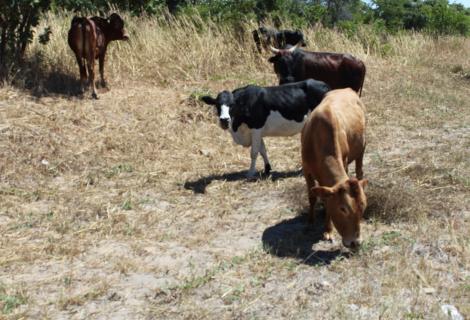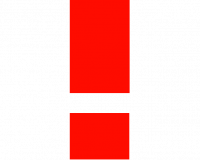Less and better meat, dairy and eggs in the Farm to Fork Strategy

This joint letter was sent to EU Commissioners from Brussels on 25 February 2020. You can download the letter as a PDF file here.
To: Executive Vice President Timmermans
Cc: Commissioners Kyriakides, Wojciechowski and Sinkevičius
The sustainability of food systems is crucial to the aims of the European Green Deal, from tackling the climate crisis and preventing environmental destruction to protecting the health and well-being of citizens.
We are alarmed that one key issue has been so far absent from the Commission’s communications on the Farm to Fork Strategy: the inherent unsustainability of a big part of Europe’s current animal farming systems and the overconsumption of meat, dairy and eggs. This omission jeopardises the strategy’s credibility and viability to achieve its objectives of making EU food a “global standard for sustainability”.
The heavy toll that industrial animal production takes on the environment [1], on human health [2], on animal welfare [3] and on rural communities [4] is well established amongst the scientific community [5].
We are calling on the Commission to explicitly recognise and address the need to reduce and improve the production and consumption of meat, dairy and eggs in the Farm to Fork Strategy, in line with overwhelming scientific evidence.
Farmed animals have a place in sustainable food and farming systems, as part of extensive, circular, and mixed farming models, which also have a higher potential for animal welfare. But this type of sustainable farming with animals is increasingly struggling to make ends meet and is being replaced by industrial animal farming [6]. Farmers producing sustainably and to higher animal welfare standards deserve to get a fair price for their work, and they need support when faced with a highly concentrated animal processing and retail sector, where a few international corporations are consolidating control over prices and production.
Given the urgency of the climate and ecological crisis and growing health concerns, changes to our food system cannot be left to consumer choice alone. The industrialisation of animal farming has been supported by policies and incentives – and politicians have the responsibility to reverse this trend.
We call on the European Commission to develop, as part of the Farm to Fork Strategy, a dedicated action plan towards less and better consumption and production of meat, dairy and eggs in the EU, to shift away from industrial farming.
This action plan should set binding targets and put forward a set of measures to reduce industrial animal production, support better animal farming, and create enabling food environments - a combination of surroundings, opportunities and conditions that influence people’s food and beverage choices - for the uptake of more healthy, plant-rich diets. Several concrete policy proposals to achieve this have already been put forward, for example in the joint NGO letter on the Farm to Fork Strategy in December 2019. [7]
We remain at your disposal for clarifications and any further dialogue on this matter.
Sincerely,
Jagoda Munić, Director, Friends of the Earth Europe
Hannes Lorenzen President, ARC2020
David Sánchez, Director, Food & Water Action Europe
Pierre Maison, Coordination Committee Member, European Coordination Via Campesina
Carina Millstone, Feedback
Sascha Marschang, Secretary General (Acting), European Public Health Alliance (EPHA)
Will Clark, Executive Director, Health Care Without Harm (HCWH) Europe
Philip Lymbery, Global CEO, Compassion in World Farming
Jeremy Wates, Secretary General, European Environmental Bureau (EEB)
Marta Messa, Director, Slow Food Europe
Ariel Brunner, Acting Regional Director, BirdLife Europe
Judith Hitchman, President, Urgenci
Gabriel Schwaderer, Director, EuroNatur
Floriana Cimmarusti, Secretary General, SAFE-Safe Food Advocacy Europe
Magda Stoczkiewicz – Deputy director, Greenpeace European Unit
Pierre Sultana, Director, VIER PFOTEN European Policy Office
Shefali Sharma, Director, Institute for Agriculture and Trade Policy (IATP) Europe
Ester Asin, Director, WWF European Policy Office
Isabelle Brachet, ActionAid International
Reineke Hameleers, Director, Eurogroup for Animals
References:
[1] For example: IPCC, Special Report on Climate Change and Land (2019), FAO, State of the World’s Biodiversity for Food and Agriculture (2019), EEA, The European environment - state and outlook 2020 (2019)
[2] For example: The EAT–Lancet Commission on healthy diets from sustainable food systems (2019); Review on Antimicrobial Resistance, Tackling Drug-Resistant Infections Globally: final report and recommendations (2016); Lelieveld et al., The contribution of outdoor air pollution sources to premature mortality on a global scale, Nature (2015).
[3] For example: Compassion in World Farming (CIWF), 2017. End the Cage Age: Why the EU must stop caging farm animals. CIWF, 2017; CIWF, 2017. Towards a healthy, sustainable, humane food and farming system; CIWF, 2014. Ending Factory Farming: Animal Cruelty. Factsheet.
[4] For example Food and Water Europe 2013, Spain, towards pig factory farm nation?; Global Environmental Health and Sustainability, Joan A. Casey et. al 2015, Industrial Food Animal Production and Community Health.
[5] & [7] Open letter from civil society to the European Institutions 2018, LESS AND BETTER: A CALL FOR POLICY ACTION ON ANIMAL FARMING
[6] Eurostat 2013, Farm Structure Survey 2013
